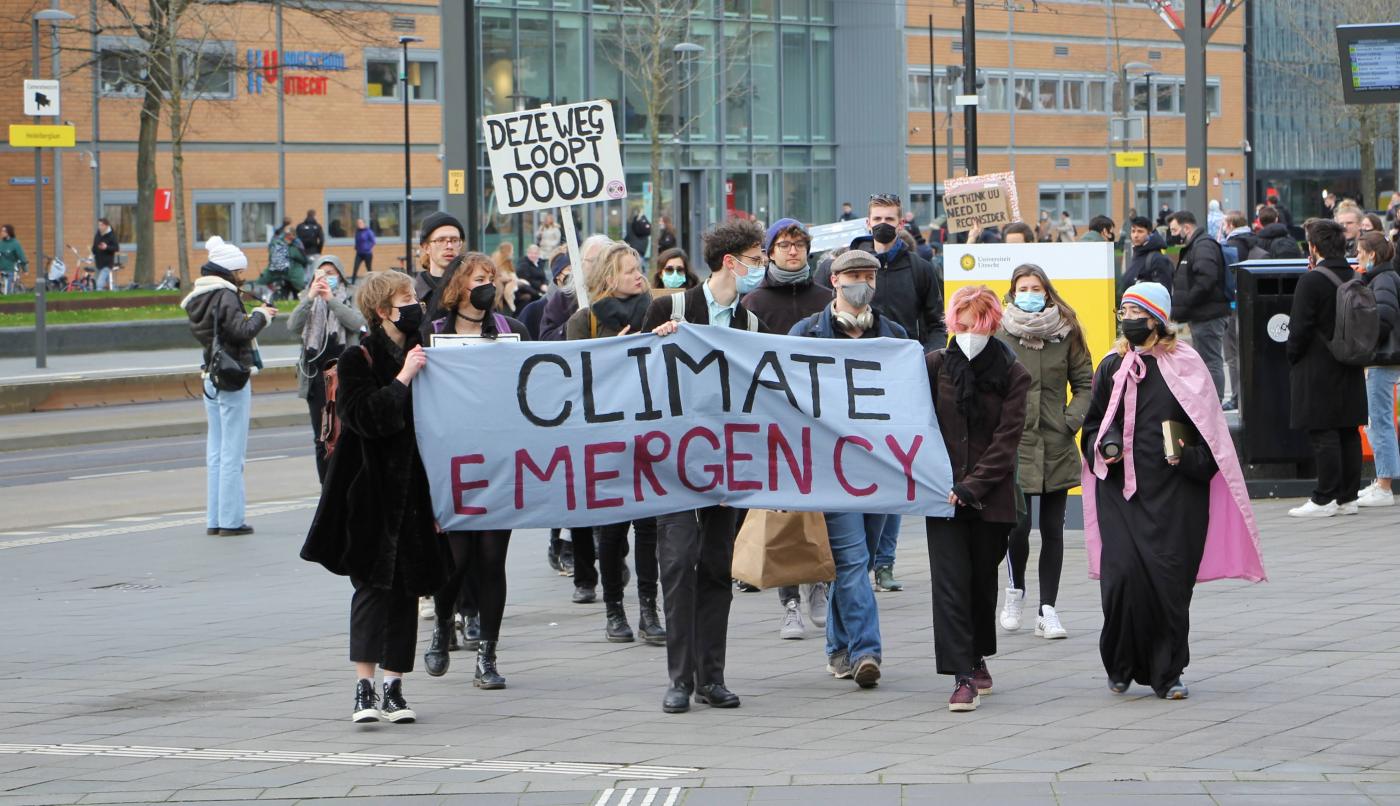The UU community must put them into practice
UU establishes new conditions for collaborating with fossil fuel industry

A group of students from the protest group End Fossil: Occupy occupied UU's Minnaert building, in the Utrecht Science Park, in May, urging the university to sever its ties with the fossil fuel industry. The activists called on the university to be transparent about said ties, revealing how many of its research projects are financed by fossil fuel companies. Their greatest wish would be for this type of company to be unwelcome at UU.
UU's first reaction was to start using the term "climate emergency" in its communication materials, something that the university refrained from doing up until then because there was no emergency at UU itself. The second step was to publicise part of its collaborations with the fossil fuel industry on a dedicated website. To come up with the list, UU considered all companies that "produce oil and other fossil fuels themselves, as well as chemical companies with a strong affinity with the production of said fuels."
In addition, the university promised to publish new guidelines on how to collaborate with this industry by September. The document came out in July, however. In it, UU declares that it will only join forces with companies that "work intensively and demonstratively on accelerating the energy transition, as stipulated by the Paris Agreement." This means that the companies must be working hard not to let global warming surpass 2 degrees Celsius, although 1.5 degrees would be preferable.
New policy
The new guidelines are set to be discussed with the deans and the University Council this year, so they can come up with specific criteria. In case of doubt, there should also be a review committee to verify if companies wishing to work with UU meet the criteria or not.
UU's new policy resembles the ones recently adopted by VU Amsterdam and the University of Amsterdam (UvA): both of them announced earlier this year that they would only be working with fossil fuel companies that are committed to the energy transition as defined by the Paris Agreement.
Many questions remain unanswered
Two UU students who are part of End Fossil:Occupy reacted to UU's announcement in a personal capacity. They cannot speak for the entire group because the summer holidays prevented them from meeting up to discuss the matter. Basically, the two students welcome the new guidelines but they're waiting to see how they are going to be put into practice. After all, they find the text rather vague. Nevertheless, if UU is to follow these principles, this means that big oil companies like Shell and BP will be out of the picture. "At least when it comes to scientific research."
They observe, however, that the guidelines raise a lot of questions. For example, it's not clear whether current collaborations will be dropped or if the document only concerns future partnerships. "What if a current partner does not meet the criteria? Will the partnership be put to a halt?" The definition of fossil fuel company is also way too vague, in their view. "What do they mean by 'strong affinity with the production of fossil fuels'? We're afraid that this might be interpreted in a much too limited way. For instance, there are companies that research the transition to sustainable energy but they are actually part of a fossil fuel company. Will the UU work with those types of companies? The community should have a say about that."
The duo is looking forward to the implementation of the guidelines, which, in their view, should involve more people than just the university's administrators and the University Council. After all, that's only a small part of the university community. "Take the deep democracy sessions, for instance. The only ones who came to those meetings were the people who had the time for it or those who are so passionate about the subject that they made the time for it, like us. There should be some kind of council with random members of the UU community so that their voice is heard as well."
Last but not least, the two students regret that the announcement was made in July, in the middle of the summer vacation and a bit behind closed doors. "We're curious to hear how the Executive Board came up with these guidelines."